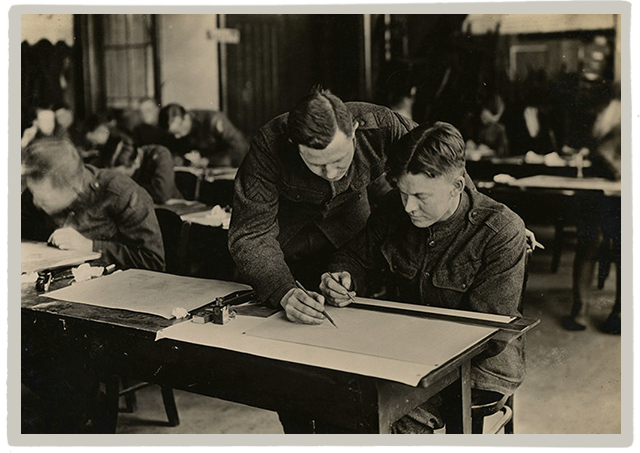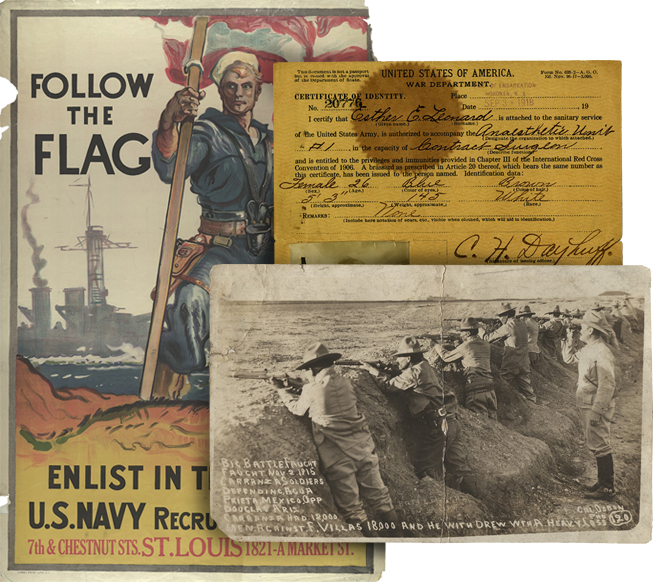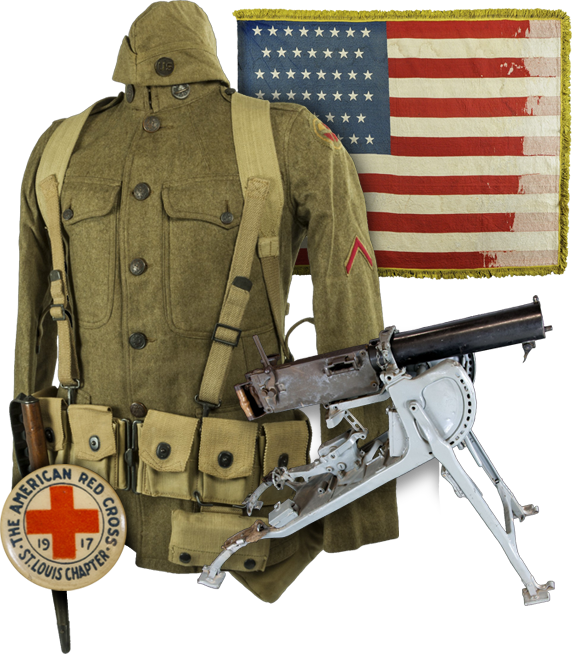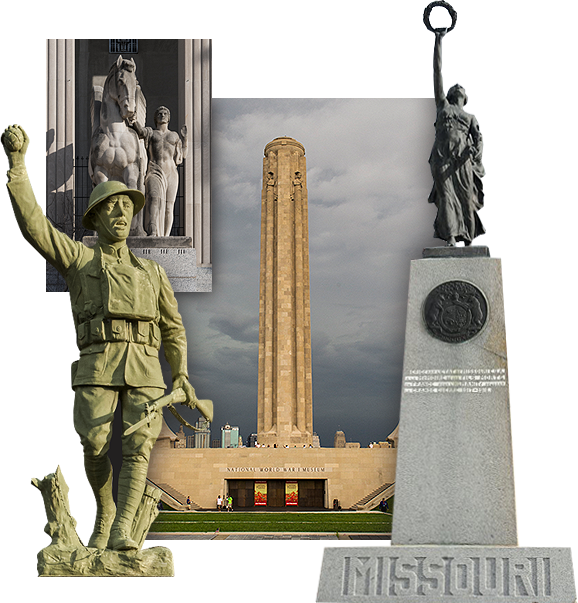Owen Krueger letter to Dr. Henry Milton Whelpley - June 15, 1919

Transcript
[photo]

Transcript
Henry M. Whelpley 2342 Albion Place, St. Louis, [Missouri] Cottbus Prussia June 1 – [1919]. With my assistant on our way to Camp Merzedor in my “Imperial German government car.” Capt. O.W. Krueger [June 15, 1919]

Transcript
[postcard]

Transcript
Henry M. Whelpley 2342 Albion Place, St. Louis, [Missouri] Spreuwald, Prussia June 15 1919 Recently spent a day [ms illegible: 1 wd] these interesting people, all transportation done by water. The women wear peculiar clothes of [ms illegible: 1 wd] colors which are most attractive. It is a charming ride along the canals in these boats . Capt. O.W. Krueger 1919

Transcript
[postcard]

Transcript
Im Spreewald Henry M. Whelpley 2342 Albion Place, St. Louis, [Missouri]

Transcript
Cottbus, Prussia, June 15th, 1919. Dear Doctor [Henry Milton] Whelpley: Your welcome letter of April 30th enclosing Dr. Joseph P. Remington’s well merited euology upon your 25th anniversary as teacher in the St. Louis College of Pharmacy was duly received and appreciated. The honor conferred upon you in those lines by that grand old man – America’s most gifted pharmaceutical instructor, should not only be an added inspiration for you to continue on with your good work, but at the sunset of your life, while reviewing the results you have accomplished, they will be a source of much comfort. Yes, I have been to Berlin, but to me it is not the same beautiful city it was before the war. Am enclosing another article relative to conditions here during the armistice, which you may publish if you desire. Should I return home by way of St. Louis shall be pleased to take advantage of the opportunity and call on you. Wishing you continuous success you deserve, I am Fraternally, Owen W. Krueger Captain M.C.

Transcript
Camp Sielow Cottbus, Prussia, June 15th, 1919. When the German Peace Commission received the Allie’s terms at Versailles they were immediately translated and published in full in all of the papers. As the various articles were discussed and digested in the cafes the folk became very restive and their wailing was long and loud. “Unser armes Deutchland ist jetzt kaput” was the expression most frequently heard. As a rebuke to the harsh and unjust terms which would never be signed, so the press reported, the whole country was ordered into mourning for one week beginning May 11th, during which period no music or gaiety was permitted and all places of amusement were closed. Our presence upon the street still excites much curiosity, and to one who has travelled in Germany both during peace times and under the armistice a radical change of the folk is apparent. During the former an American was shown every courtesy, now you are looked upon with suspicion, are often given scowls and frequently slanderous remarks are directed towards you. Many of the soldiers especially the younger ones are still arrogant and boastful, they claim they were not beaten, that they could have held out another year but withdrew rather than sacrifice any more lives. They may believe they were not licked but the countenance of many betray the fact that they are apprehensive of the future while promenading they do not whistle and sing, “Deutchland uber alles” now, as they did prior to 1914. No people since

Transcript
[page 2] Rome has cherished so towering an ambition and none, not even the Romans have suffered so swift and complete a downfall. It has been the greatest gamble in history and a hair’s breath has divided it from success. The performance of my duties require me to travel over the country so I have had an opportunity to interview the people in various sections and find that practically all were solidly behind the government during the war and seemed ready and willing to make any sacrifice that would insure victory. Several women informed me they had donated their wedding rings and seemed proud of it. The press reports were all garbled in favor of the Fatherland and until long after the armistice the people did not learn the true strength of the United States Army in France. Seventy five thousand had been the maximum number stated in the papers. As late as March, during a conversation with a prominent manufacturer in Westphalia, his eyes nearly bulged from their sockets when I told him the facts. He like numerous others was under the impression that their U-boats had sank many of our transports thereby making it impossible for America to land a large army. It is the concensus of opinion among the laity that our country put the finishing touches to them. They had no idea America would enter the war, as their press had reported, that the Germans in America would remain loyal to the Fatherland and find some means of preventing our entry. They cannot comprehend why this was not accomplished. It is true that the middle and lower classes have suffered acutely for food, especially fats, the past three years, their anemic and gaunt condition verify this, they subsisted chiefly upon black bread, potatoes ,turnips and cabbage, as a substitute for coffee toasted rye or kolraba was used.

Transcript
[page 3] Dog and cat meat was sold on the open market at four marks per pound, just double the price of horse meat. Cats are practically extinct in Germany at present, the flesh of these animals entered largely into their liverwurst and hamburger. American flour and pork is now on sale in the larger cities, one half pound of flour and one forth pound of pork is alloted each member of a family weekly. This had proved a blessing and was joyfully received, flour is quoted at two and one half marks, pork six and one half marks and butter at thirty two marks per pound, eggs are one and one half marks each. During March and April the country folk are busy early and late preparing the ground for their crops, every one works over here including father and the dogs, Seemingly every nook and corner of Germany is under cultivation and the outlook for a bountiful harvest is excellent. The country is densely populated and one wonders at the vast number of children to be seen everywhere, the ratio is about two to one in favor of the boys, every youngster if ten can salute and do a fours right to perfection, each school class is recognized by a certain colored military cap and the students clothes are of a dictinctively military cut. In the early part of March during the riots in Berlin a number of people were killed and wounded and many fine buildings were partially destroyed, while others were seriously damaged by cannon and machine gun fire. Streets were blockaded with barbed wire, paving stones, barrels, boxes and wagons. Anti-aircraft guns were stationed about the city and soldiers with machine guns mounted upon motor trucks paraded the streets constantly to assist in maintaining order. Soldiers were stationed in groups upon the

Transcript
[page 4] streets and in Wilhelmplatz before the office of the American Red Cross two three inch cannon were placed. Machine guns ready for action were to be seen at all points of vantage in the business section as well as in front of the Hotel Adlon, Under den Linden, where the American Military Mission have their headquarters. Several demonstrations of some magnitude directed against the Americans by the citizens have occured before the hotel, but no serious consequences have as yet resulted. At present the people on the left bank of the Rhine are loudly protesting against the idea of the Allies making that territory a separate province as a protection against another invasion of France. The inhabitants of east Prussia openly declare they will not be separated from the Fatherland, while the populance living in lower Silesia avow they will fight to the last and would rather be annihilated than be attached to Poland. Germany has a well equipped army estimated at over a million men including tanks, aeroplanes and field pieces along the entire Polish and Czeco-Slavic border. The whole country is restless and seemingly in a state of turmoil, a strong undercurrent of Bolshevism prevails. If Germany bows to the inevitable and signs, then, should people rebel is the present government strong enough to control them? Should they refuse and the allies cross the Rhine and confiscate the Saare coal and iron district and intensify the blockade, will the populance become Bolshevists as they threaten and run riot until only the fittest survive? Either event should form an interesting chapter for another story.
Details
| Title | Owen Krueger letter to Dr. Henry Milton Whelpley - June 15, 1919 |
| Creator | Krueger, Owen |
| Source | Krueger, Owen. Letter to Dr. Henry Milton Whelpley. 15 June 1919. Dr. Henry Milton Whelpley Collection, 1826-1929. A1737. Missouri History Museum, St. Louis, Missouri. |
| Description | Owen Krueger sent this letter to Dr. Henry Milton Whelpley. Dr. Whelpley was the dean of the St. Louis College of Pharmacy and editor of the Meyer Brothers Druggist magazine. Krueger enclosed an article for publication that detailed his experiences in the occupation of Germany. He also included several postcards and photos. |
| Subject LCSH | World War, 1914-1918; World War, 1914-1918--Occupied territories |
| Subject Local | WWI; World War I |
| Site Accession Number | A1737 |
| Contributing Institution | Missouri History Museum |
| Copy Request | Transmission or reproduction of items on these pages beyond those allowed by fair use requires the written permission of the Missouri History Museum: 314-746-4510 |
| Rights | The text and images contained in this collection are intended for research and educational use only. Duplication of any of these images for commercial use without express written consent is expressly prohibited. Contact the Missouri History Museum's Permissions Office at 314-746-4511 to obtain written consent. |
| Date Original | June 15, 1919 |
| Language | English |



